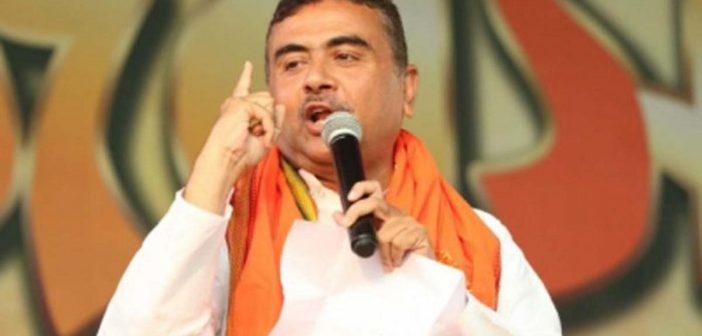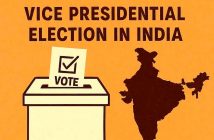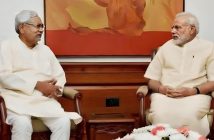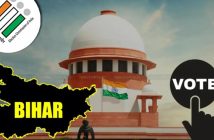Suvendu Adhikari, West Bengal’s Opposition Leader, has sparked controversy by urging the Election Commission of India to block domicile certificates issued after July 25, 2025. Citing a surge in voter applications, Suvendu Adhikari seeks ECI domicile certificate ban. He alleges manipulation by the state government to favor illegal immigrants. This demand has sparked a political firestorm, with the ruling Trinamool Congress labeling it divisive. As tensions rise ahead of the 2026 elections, will the ECI act to ensure a fair voter list update?
Suvendu Adhikari seeks a ban on ECI domicile certificates to safeguard West Bengal’s electoral integrity, raising concerns over potential voter list manipulation. On July 28, 2025, the Bharatiya Janata Party (BJP) leader wrote to Chief Election Commissioner Gyanesh Kumar. He urged that domicile certificates issued after July 25, 2025, be excluded from the Special Intensive Revision (SIR) of electoral rolls. Adhikari’s plea stems from a sharp rise in voter registration applications, particularly in border districts, which he claims signals an attempt to legitimize illegal immigrants. This move has intensified political tensions, setting the stage for a heated debate as the state gears up for the 2026 assembly elections.
The Context of Adhikari’s Demand
Suvendu Adhikari seeks a ban on ECI domicile certificates to address concerns about electoral fairness in West Bengal. His letter to the ECI highlights a “disturbing trend” in border districts such as Coochbehar, Alipurduar, and Jalpaiguri. Where over 70,000 Form-6 applications for new voter registrations were submitted in a single week. This is a significant jump from the usual 20,000–25,000 applications. Adhikari alleges that the West Bengal administration, led by Chief Minister Mamata Banerjee’s Trinamool Congress (TMC), is issuing domicile certificates to Rohingya Muslims and illegal Bangladeshi immigrants to manipulate voter demographics.
The July 25 cutoff date is critical, Adhikari argues, as it marks the start of a sudden spike in applications. He claims these certificates are being used to enroll ineligible voters, threatening the integrity of the electoral process. His concerns echo earlier demands for a “Rohingya-free” voter list, reflecting his ongoing campaign against alleged illegal immigration in Bengal.
Political Reactions and Counter-Claims
The ruling TMC has fiercely opposed Adhikari’s allegations, labeling them as communal rhetoric intended to polarize voters. TMC spokesperson Debangshu Bhattacharya challenged the BJP to provide a list of the alleged 1.25 crore illegal immigrants Adhikari claims are on the voter list. “Can he identify such a massive number? This is just divisive politics,” Bhattacharya said. The TMC argues that the voter roll revision could unfairly target legitimate voters, including Muslims and opposition supporters, as seen in Bihar’s recent SIR exercise.
Chief Minister Mamata Banerjee has also criticized the ECI’s Bihar voter list revision, which removed 35–40 lakh names, fearing a similar purge in Bengal. “We will not let this happen. We will fight it,” she declared at a Kolkata event on July 21, 2025, warning of a “Gherao movement” if the ECI proceeds similarly. Banerjee accused the BJP of targeting Muslim voters to tilt the electoral balance.
In response, Adhikari dismissed Banerjee’s protests as “drama” to protect her vote bank. He alleged that Mamta government has issued fake Aadhaar cards, birth certificates, and voter IDs to Rohingyas and Bangladeshi immigrants. He claimed that an unfenced 540-km border with Bangladesh has enabled this influx. With one crore Rohingyas allegedly integrated into Bengal and Suvendu Adhikari seeks ECI domicile certificate ban.
The Legal and Electoral Framework
The Special Intensive Revision (SIR) of electoral rolls is a standard process for updating voter lists, ensuring that only eligible citizens are registered to vote. The ECI has clarified that no names will be deleted without proper notice and a written order from the Electoral Registration Officer (ERO). In Bihar, the SIR identified 35 lakh untraced or migrated electors, fueling debates about its fairness. West Bengal’s SIR, if conducted, would likely follow similar guidelines, with booth-level officers (BLOs) verifying voter details through house-to-house surveys.
Adhikari’s demand for a domicile certificate ban hinges on the legal requirement that voters must be Indian citizens with valid proof of residence. Domicile certificates, issued by state authorities, are often used to establish residency for voter registration. By seeking to exclude certificates issued after July 25, Adhikari aims to prevent what he calls “unethical and illegal” voter enrollments. The ECI has not yet responded to his letter. but sources indicate that training for BLOs has begun in West Bengal, signaling preparations for a possible SIR.
The July 25 Cutoff: Why It Matters
The choice of July 25 as a cutoff date is a strategic one. Adhikari’s letter cites a sudden surge in Form-6 applications after this date, particularly in border districts such as Maldah, Murshidabad, and Nadia. He alleges that the state administration, under Banerjee’s directives, has instructed district magistrates to issue domicile certificates to alter voter demographics. “This is vote bank politics that undermines democracy,” Adhikari wrote on X, urging District Election Officers to prioritize national interests.
The ECI’s guidelines allow flexibility in accepting identity documents, but Adhikari argues that certificates issued after July 25 lack credibility due to their timing. Critics, however, question the feasibility of enforcing such a ban, as it could exclude legitimate voters who recently obtained certificates. The controversy underscores the delicate balance between preventing fraud and ensuring inclusivity in voter registration.
Broader Electoral Tensions
The dispute over domicile certificates is part of a larger political battle in West Bengal as the 2026 assembly elections approach. Adhikari, a former TMC leader who joined the BJP in 2020, has positioned himself as a vocal critic of Banerjee’s government. His campaign for a “Rohingya-free” Bengal aligns with the BJP’s broader narrative of tackling illegal immigration, a contentious issue in the state. On July 26, Adhikari claimed that 1.25 crore illicit immigrants are on Bengal’s voter list, a figure the TMC dismissed as exaggerated.
Banerjee, meanwhile, has accused the BJP of using the SIR to suppress opposition Muslim voters. She said Muslims form a significant portion of her vote base. Her “Bhasha Aandolan” protest against the Bihar SIR reflects fears that a similar exercise in Bengal could disenfranchise minorities. The ECI’s neutral stance, emphasizing procedural fairness, has done little to calm these tensions.
ECI’s Role and Potential Response
The Election Commission of India faces a challenging task in addressing Adhikari’s demand. Accepting his plea could set a precedent for stricter voter verification, but it risks accusations of bias from the TMC. Rejecting it might embolden allegations of lax oversight. The ECI’s recent actions in Bihar, where it removed ineligible voters while promising transparency, suggest a cautious approach. In West Bengal, the commission may opt for enhanced scrutiny of domicile certificates without a blanket ban, ensuring compliance with legal standards.
Suvendu Adhikari seeks ECI domicile certificate ban and has also called for a house-to-house survey. This will verify voters, a proposal the ECI is likely to consider if an SIR is announced. Such a survey could address concerns about illegal registrations while protecting the rights of legitimate voters. However, with high political stakes, any decision will face intense scrutiny from both sides.
Historical Context and Ongoing Debate
This is not Adhikari’s first push for voter roll reforms. On July 6, 2025, he welcomed Bihar’s SIR and urged a similar exercise in Bengal to remove ineligible voters. His earlier demands for a “Rohingya-free” voter list. And claims of fake identity documents have fueled ongoing clashes with the TMC. The party accuses him of communalizing the issue to polarize voters ahead of the 2026 polls.
The debate also reflects deeper demographic and security concerns in Bengal, particularly along its porous border with Bangladesh. Adhikari’s allegations of unfenced borders and state complicity in issuing fake documents resonate with the BJP’s national narrative but lack concrete evidence, according to critics. The TMC insists that Bengal’s diverse population, united by language and culture, is being unfairly targeted.
Conclusion
Suvendu Adhikari seeks a ban on ECI domicile certificates to ensure a fair and transparent voter roll revision in West Bengal. His allegations of manipulation by the state government have intensified the political divide, with the TMC accusing him of divisive tactics. As the ECI prepares for a possible SIR, its response to Adhikari’s demand will shape the electoral landscape ahead of the 2026 elections. Balancing integrity with inclusivity remains the key challenge, as Bengal braces for a contentious voter list update.
Stay updated on West Bengal’s electoral developments with our latest news coverage.




